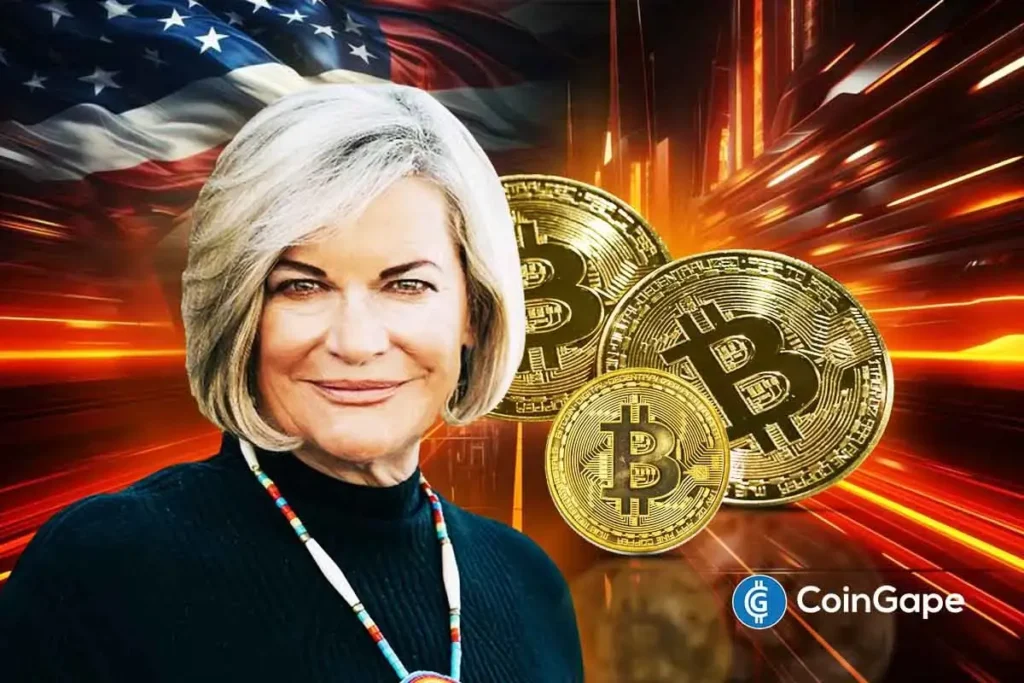U.S. Government Moves Toward Strategic Bitcoin Reserve: A New Era in Cryptocurrency?
Senator Cynthia Lummis has recently confirmed that the U.S. government is poised to initiate funding for its Strategic Bitcoin Reserve (SBR). Her announcement highlights the growing momentum of Bitcoin (BTC), which has recently surged to an impressive new all-time high of $126,000. This significant milestone not only reflects the increasing adoption of cryptocurrency but also indicates the government’s recognition of Bitcoin as a viable asset class worth considering for national reserves.
The Role of Leadership and Vision in Cryptocurrency Initiatives
In an X post, Senator Lummis commended President Trump’s contributions to advancing the SBR initiative. Her remark that “the acquisition of funds for an SBR can start anytime” underscores the urgency with which the government is approaching Bitcoin allocation. Supporting this, Bitwise investor Jeff Park discussed the potential for reallocating a portion of U.S. gold profits into Bitcoin during an interview on The Pump Podcast. He argued that such a strategy could bolster America’s financial standing, suggesting that the long-term benefits of investing in Bitcoin could be extraordinary.
Exploring New Financial Frontiers with Bitcoin
The rationale behind reallocating gold profits into Bitcoin is straightforward. As Jeff Park posits, the U.S. can potentially tap into unrealized gains from its substantial gold holdings to fund Bitcoin acquisitions. This strategic pivot not only aims to diversify the nation’s financial portfolio but also aligns with the growing public sentiment favoring crypto assets. Market analysts are closely monitoring Bitcoin’s performance, as its value spikes elevate discussions surrounding its legitimacy as a long-term store of value.
The White House Takes Action on Digital Assets
These developments are reinforced by a recent report from Donald Trump’s Digital Asset Working Group, emphasizing the need for U.S. regulators to expedite the creation of clearer crypto guidelines. This initiative, endorsed by the White House, aims to establish a formal Bitcoin Reserve alongside a broader Crypto Stockpile. Such measures indicate a growing acknowledgment of cryptocurrency’s role in financial markets, marking a pivotal shift in U.S. monetary policy.
State-Level Initiatives: A Grassroots Crypto Movement
The federal government’s commitment to a Strategic Bitcoin Reserve comes at a time when several states are launching their own cryptocurrency initiatives. Texas, for instance, has enacted SB 21, which empowers the state to purchase and hold Bitcoin directly as part of its treasury. This bold move, championed by Governor Greg Abbott, places Texas among the forefront of states embracing digital currencies. Dennis Porter, CEO of the Satoshi Act Fund, labeled this development as a “historic win,” underlining its significance in the broader crypto landscape.
Legislative Changes: Formalizing Bitcoin Acquisition
In tandem with state-level measures, federal legislation is progressing. Representative Tim Burchett introduced H.R. 3798, aimed at codifying Executive Order 14233 into federal law. This bill seeks to formalize the establishment of the SBR, requiring the U.S. to systematically acquire and hold Bitcoin as a strategic asset. Countries like El Salvador and the UAE have already reaped the benefits of early adoption, with significant Bitcoin holdings translating to impressive unrealized gains. This in-depth exploration of legislative frameworks reveals a growing recognition of cryptocurrency’s potential on the global stage.
Conclusion: Bitcoin’s Future in U.S. Policy
The U.S. government’s move towards establishing a Strategic Bitcoin Reserve is a landmark moment in the ongoing evolution of cryptocurrency. As Bitcoin reaches new heights, acknowledging its potential as a legitimate asset class is increasingly critical. Both federal and state initiatives signal a shift towards a more cryptocurrency-friendly regulatory environment, paving the way for a new era in finance. With the world watching, the question remains—how far will the embrace of Bitcoin extend, and what implications will it have for the U.S. economy moving forward?


